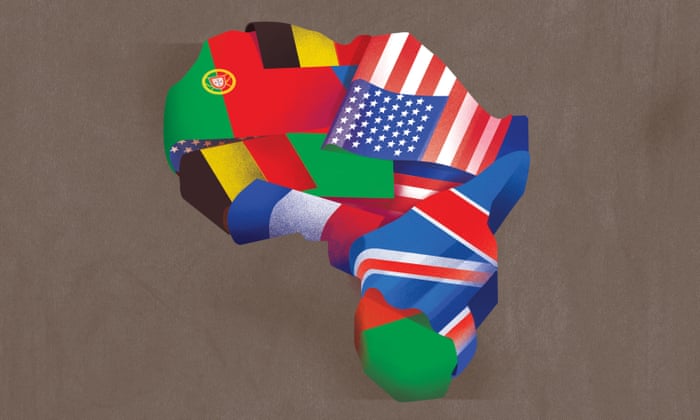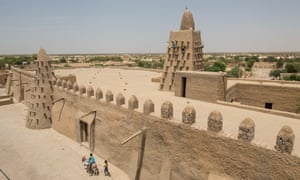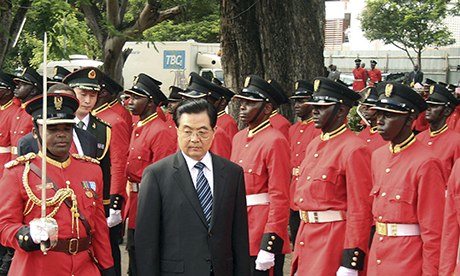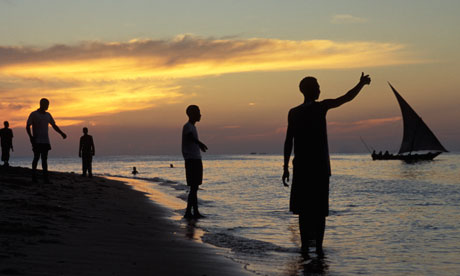Robin Wigglesworth and Sun Yu in The FT
Zambia, struggling from an economic and financial crisis compounded by the Covid-19 pandemic, first missed an interest payment on its international bonds. Two and a half years later it remains in limbo, unable to resolve the default on most of its $31.6bn debts.
That an impoverished and vulnerable country has for so long unsuccessfully laboured to reach a deal with creditors and move on from the crisis is an illustration of the messy process to deal with government bankruptcies, which some experts fear has now broken down completely.
The consequences could be severe for the spate of countries that have recently defaulted on their debts, and the topic has been high on the agenda of this week’s spring meetings of the IMF and World Bank in Washington.
In her opening remarks at those meetings, the IMF’s managing director Kristalina Georgieva noted that about 15 per cent of low-income countries were already in “debt distress” and almost half were in danger of falling into it.
“This has raised concerns over a potential wave of debt restructuring requests—and how to handle them at a time when current restructuring cases are facing costly delays, Zambia being the most recent example,” she told attendees.
While domestic laws and judges govern the bankruptcies of companies and individuals, there is no international law for insolvent countries — only a chaotic, ad hoc process that involves working through a hodgepodge of contractual clauses and tacit conventions, enduring tortuous negotiations and navigating geopolitical expediency.
A decade ago, US-based hedge fund Elliott Management exploited that landscape to notch up several lucrative victories by suing defaulters for full repayment of their debts. But this fragile patchwork is now under threat of unravelling completely due to the emergence of a new, disruptive, opaque and powerful force in sovereign debt: China.
Some experts say Beijing’s lending spree to developing countries and refusal to play by western-established rules represents the single greatest impediment to government debt workouts and threatens to leave some countries in debt limbo for years.
But Yu Jie, a senior research fellow on China at think-tank Chatham House, believes Beijing’s stance “is less about economic rationalities and more about geopolitical competition”.
“The multilateral financial institutions are run largely by Americans and Europeans. China had hoped to be able to shape the agenda of debt relief, not to have it dictated by the west,” she says.
Jay Newman, the former Elliott fund manager who successfully sued Argentina for $2.4bn after its 2001 debt restructuring, says the emergence of China as a significant player has left the entire system in uncharted waters. “You now have one big state creditor with the power to dictate terms and the patience not to make a deal if it doesn’t suit them. It has completely changed the game.”
The new landscape
In a grim sign of the times, Alvarez & Marsal — one of the world’s biggest corporate bankruptcy advisers — this year set up a sovereign practice for the first time. Underscoring its expectations for the business, it hired Reza Baqir, a former senior IMF official and governor of Pakistan’s central bank, to lead the new unit.
The potential is clear. The latest IMF data from the end of February indicates that nine poorer countries — such as Mozambique, Zambia and Grenada — are already in what it terms “debt distress”, while another 27 countries are at “high risk” of falling into it. A further 26 more are on the watchlist. Baqir points out that there are also a lot of struggling state-controlled companies in these countries that will need help as a result.
“The timing was right” for A&M to set up a sovereign advisory unit, he says. “Given that there are more than 50 countries in various stages of debt distress there is an opportunity for a more holistic approach.”
Baqir is among those that say the debt restructuring process is broken, largely because it was primarily designed for a bygone era, when creditors were overwhelmingly western countries and western banks.
Decades ago, the Paris Club was formed to co-ordinate between government creditors, while bankers formed the London Club to restructure their debts. Broadly speaking, western governments drove the process, and occasionally leaned on banks to accept painful settlements. It was largely improvised and often slow, but it mostly worked.
But the decline of bank lending and the growth of the bond market shook things up in the spate of sovereign defaults that started in the early 1990s. Creditor co-ordination became trickier with myriad bondholders trading claims around the world, rather than just a handful of banks.
Argentina’s default on $80bn of bonds in 2001 led to years of fights between Buenos Aires and investors such as Elliott, which refused to accept the terms agreed by other creditors. At one point the hedge fund famously seized an Argentine naval vessel when it docked in Ghana. Its reputation became such that bondholders would sometimes invoke the mere spectre of Elliott to scare countries contemplating a default, while policymakers used it as prima facie evidence of the sovereign debt restructuring system’s weaknesses.
In the wake of the Argentine debacle the IMF responded by attempting to set up a kind of bankruptcy court for countries with itself as judge. But the sovereign debt restructuring mechanism foundered after attracting little support from the IMF’s biggest shareholders. Instead, the US championed the insertion of “collective action clauses” into bonds, which compel recalcitrant creditors to accept a restructuring agreement made by a majority. After Greece’s debt restructuring in 2012 these CACs were beefed up further.
However, many bonds still lack these clauses. Moreover, they can only help ease a restructuring agreement once it is struck. Many experts point out that they do nothing to solve the biggest fundamental problem: countries are far too slow to seek a debt restructuring as they are wary of a messy process with the potential of worsening an economic crisis and the inevitable political humiliation of defaulting.
“If I was a finance minister, I’d find it hard to tell my prime minister that we have a clean framework to work with,” says Baqir.
When they are finally forced into a debt restructuring, the financial relief that countries secure is often too little to ensure a durable upswing. In the few cases where it does clean up their balance sheet, it sometimes only leads to another debt binge.
This flawed process has now been further complicated — some say wrecked — by China’s vast lending programme across the developing world over the past decade. Many of these loans are opaque in size, terms, nature and sometimes even existence.
The overall size of the lending programmes is hard to judge, given that China does not report most of it to the likes of the IMF, OECD or Bank for International Settlements. But AidData, a development think-tank based at William & Mary’s Global Research Institute, estimates that the loans amount to about $843bn. China is not a member of the Paris Club, and in most cases the loans are made by its myriad state-owned or merely state-controlled banks, muddling things further.
It’s like the international financial policy community spent the past decade trying to clean up around the street light, oblivious to the mounds of rubbish piling up unseen around the rest of the darkened street, says Anna Gelpern, a professor of law and international finance at Georgetown University.
“We spent 20 years focusing on contractual tweaks, assuming that bonds were the problem,” she says. “The problem is the state of global politics, and the fate of low-income countries just isn’t a big priority anywhere.”
Life in default
Zambia is a prime example. Of the roughly $20bn of external debt that the IMF tallied when forming its programme in 2022, $2.7bn was lent by international development banks, $1.3bn comes from various western governments, bank loans come to $1.6bn, local kwacha-denominated bonds held by non-residents are $3.3bn and international dollar-denominated bonds account for $3.3bn. But the biggest chunk is nearly $6bn owed to China.
The IMF has reached a support agreement with Zambia that is conditional on its debt burden becoming sustainable. But other bondholders do not want any relief they offer to simply go towards paying off China. Beijing has in principle agreed to accept a “haircut” on its debts, but experts say it appears to not want anything it offers to go towards improving the recovery of private creditors, leading to the impasse.
In the meantime, Zambia says it has accumulated about $1.2bn in arrears since its default. Including missed payments to various government contractors, the IMF has estimated that the arrears are actually nearly $3bn.
Highlighting how China also appears to be leveraging these situations to undermine the western-designed global financial architecture, in January it called for international organisations such as the IMF and World Bank to participate in the debt restructuring. This would overturn half a century of convention that these organisations are “super-senior” creditors exempt from debt restructurings, as participating would imperil their ability to lend to other countries.
One senior adviser to the Chinese government says that “there is no law that requires World Bank loans to be prioritised” and that the country was “not happy” with a practice that originated in an era when western countries were generally the only creditors. “If we allow the World Bank to take precedence over us, we need to have bigger voting rights and take larger stakes at the bank. China’s duty doesn’t match its rights in development finance.”
Another increasingly common wrinkle in debt restructuring is what to do with domestic bonds, which local banks and financial companies have often gorged upon. Here too, Zambia is a good example.
The $3.3bn of local currency bonds held by non-residents have also been cordoned off from the debt restructuring. Lusaka fears that reducing the value of kwacha bonds could wreck its banking industry and do more damage than they are worth. But some holders of other international bonds argue that they should also be included in the restructuring.
“In the sovereign debt restructuring business we didn’t really think much about local debts,” says Lee Buchheit, a leading lawyer in the field. “There often wasn’t much of it, and we always assumed that the sovereign has a much broader palate of mechanisms it can use to deal with domestic debt.”
But what to do about Zambia’s Chinese loans remains the thorniest issue and has risen to the highest levels in Washington and Beijing. US Treasury secretary Janet Yellen this year raised the stand-off with Chinese president Xi Jinping’s economic adviser Liu He, and said that it had “taken far too long already to resolve this matter” when she visited Lusaka in January.
China’s exceptionalism?
For the most part, experts say China seems mostly content with rolling its debts rather than restructuring them, handing out new loans to ensure that its domestic banks can be repaid in full. But it prefers to act alone, at its own pace, and feels no need for transparency.
A recent paper by several economists, including Harvard University’s Carmen Reinhart, estimated that China has made 128 bailout loans worth $240bn to 20 distressed countries between 2000 and 2021. About $185bn was extended over the last five years of the study, and more than $100bn in 2019-21.
Reinhart says that China’s lending stands out for its “extreme” opacity but stresses that its overall behaviour is not as unusual as some people say. “China is really playing hardball because it is a major creditor. US commercial banks also played hardball back in the 1980s,” she says. Baqir agrees, saying: “Whatever the colour or creed of a creditor, creditors think like creditors.”
The Chinese government adviser also points to factors such as the country’s relative inexperience with debt workouts. “China is still at an early stage in coming up with its debt relief programme,” he says.
Incomplete domestic financial reforms have also made it harder to offer debt relief to overseas creditors, while some Chinese banks are also struggling with big hits from the country’s wilting real estate sector.
“We need co-ordination from the top level, which now has other priorities,” the adviser says. He also points out that the pressure on developing countries has intensified following a series of US interest rate rises, and that as a result Washington “should be responsible for the debt trap”.
But whatever the root cause, most agree on the end result. “All of this [creditor] fragmentation is leading to paralysis,” says Sean Hagan, a former general counsel at the IMF who now teaches international law at Georgetown.
There are few solutions being floated around. The IMF in February announced a new Global Sovereign Debt Roundtable to bring together the full gamut of creditors and debtors, and hopefully thrash out ways to “facilitate the debt resolution process”. It is an initiative that few experts harbour much hope for.
Buchheit likens the impact of an assertive new player on an already fault-riddled debt restructuring system to someone having a bad cold that a doctor struggles to treat, who is then impaled by a spear. “The cold hasn’t gone away, but the doctor is likely to focus more on the spear,” he says.
Ironically, both Buchheit and Newman — who clashed many times over the years as the leading lawyer for and suer of bankrupt countries — advocate for the same basic approach: countries should restructure the debts they can, remain in default to China, and the IMF should drop its “kumbaya” approach and accept semi-permanent arrears to its biggest shareholders.
But most expect Zambia-like debt limbo to be the likeliest outcome for a lot of countries. “I suspect this is going to be a recurring problem,” says Reinhart. “And the longer these countries are in the [debt] netherworld . . . the [more the] fabric of the country is affected.”









